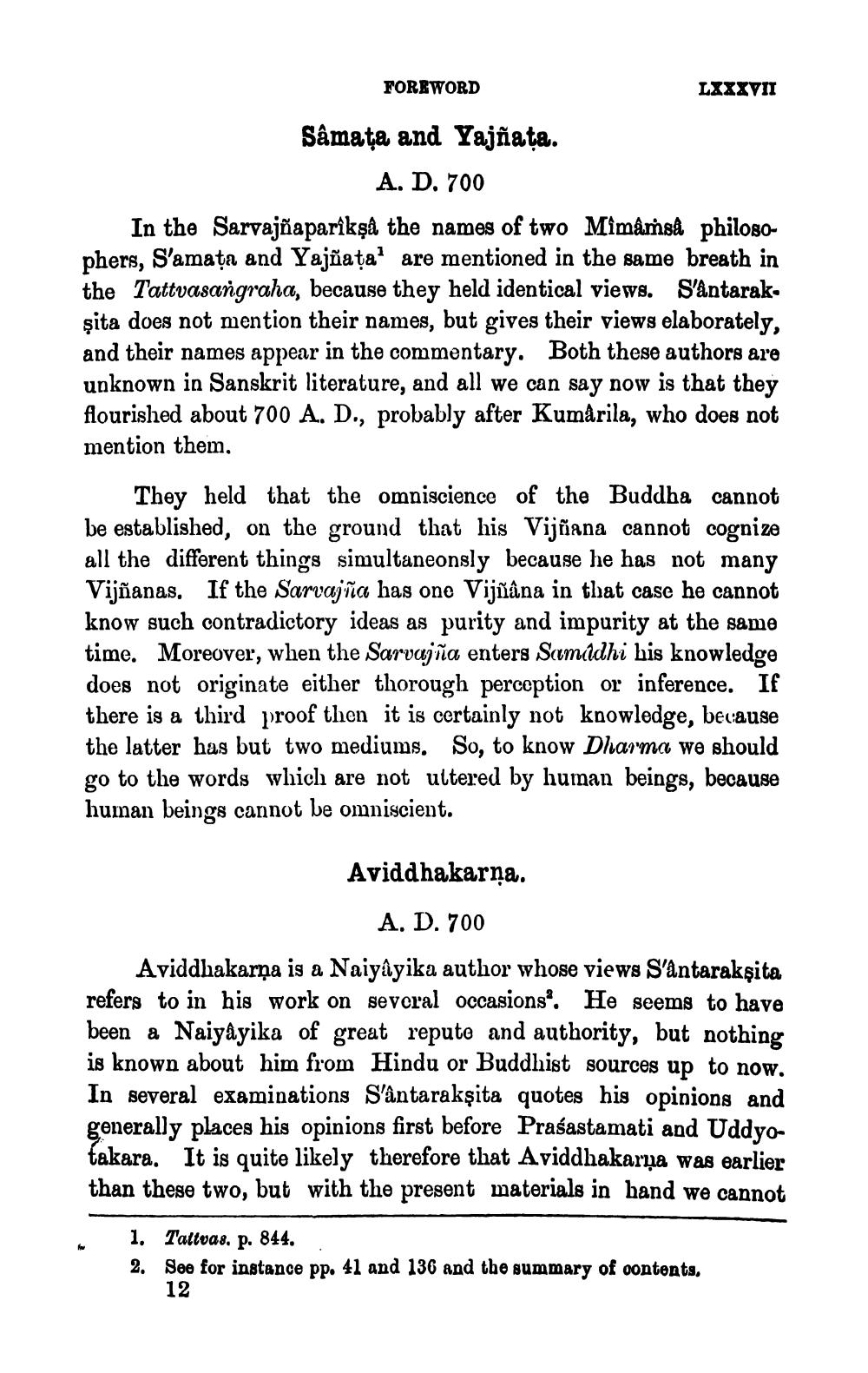________________
FOREWORD
LXXXVII
Sâmata and Yajñata.
A. D. 700 In the Sarvajñaparikşå the names of two Mimańså philosophers, S'amata and Yajñata' are mentioned in the same breath in the Tattvasangraha, because they held identical views. S'ântarak. şita does not mention their names, but gives their views elaborately, and their names appear in the commentary. Both these authors are unknown in Sanskrit literature, and all we can say now is that they flourished about 700 A. D., probably after Kumârila, who does not mention them.
They held that the omniscience of the Buddha cannot be established, on the ground that his Vijñana cannot cognize all the different things simultaneonsly because he has not many Vijñanas. If the Sarvajíc has one Vijñâna in that case he cannot know such contradictory ideas as purity and impurity at the same time. Moreover, when the Sarvajña enters Samadhi his knowledge does not originate either thorough perception or inference. If there is a third proof then it is certainly not knowledge, because the latter has but two mediums. So, to know Dharma we should go to the words which are not ultered by human beings, because human beings cannot be omniscient.
Aviddhakarna.
A. D. 700 Aviddhakarņa is a Naiyâyika author whose views S'antarakṣita refers to in his work on several occasions'. He seems to have been a Naiyâyika of great repute and authority, but nothing is known about him from Hindu or Buddhist sources up to now. In several examinations S'ântarakṣita quotes his opinions and generally places his opinions first before Praśastamati and Uddyotakara. It is quite likely therefore that Aviddhakarya was earlier than these two, but with the present materials in hand we cannot
1. Taltvas. p. 844. 2. Soe for instance pp. 41 and 136 and the summary of contents,
12




